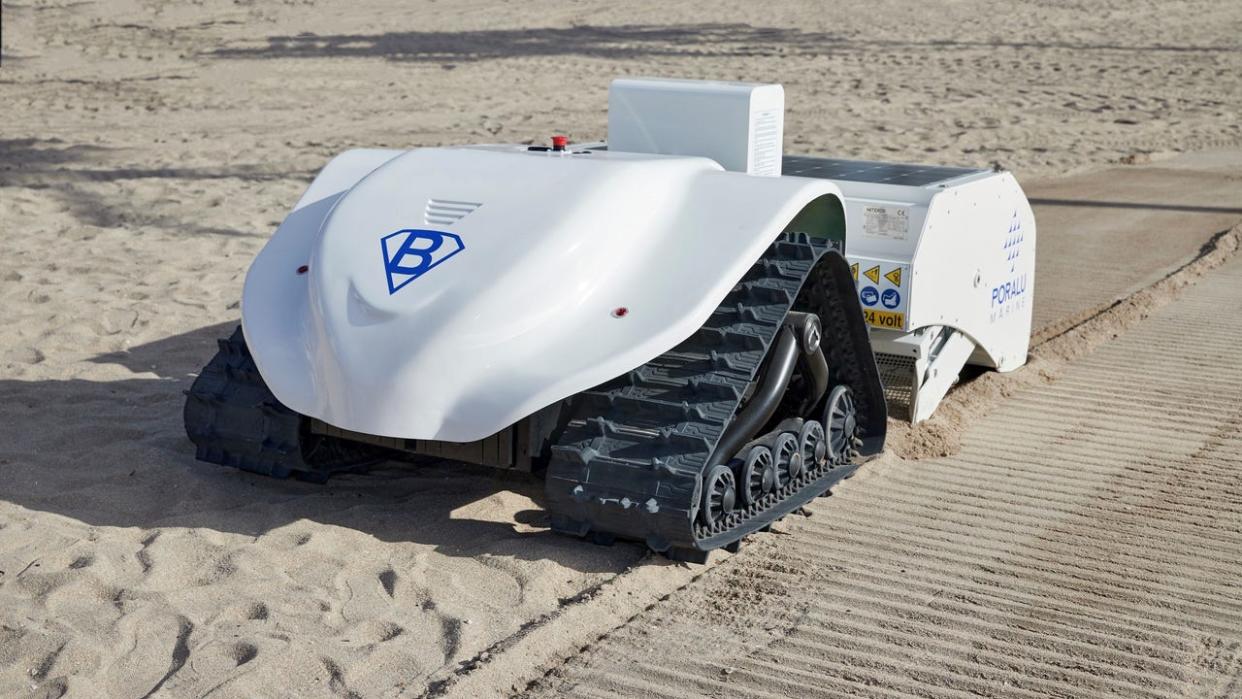Beach-cleaning robot coming to Belle Isle to pick up trash
DETROIT (FOX 2) - Meet BeBot, the cleaning robot with one task on its mind: scooping up trash.
BeBot is coming to Belle Isle where it will be in charge of sifting through the beach's sand, hunting for litter and garbage in an effort to improve the cleanliness of the popular land mass in the Detroit River.
Weighing about 1,300 pounds and about seven feet long, BeBot was brought to the sandy beach thanks to a partnership between the city, the Belle Isle Conservancy, and the Michigan Department of Natural Resources.
Organizers are excited about the coming technology.
"On our trial run we found things such as bottle caps, single-use plastic water bottle caps, cigarette butts, beach toys that were left behind, and just kind of got buried," said Genevieve Rattray of the conservancy.
While BeBot won't replace volunteer cleanup crews, it is another tool in the belt of keeping the island clean. It will also be able to capture items that volunteers normally don't have access to.
"It’s a really great way to be able to go deeper into the sand to get things that have stayed there before they go into the Detroit River affecting our environment and aquatic life," said Rattray.
Last year, the conservancy helped remove close to 9,000 pounds of single-use plastic from the park and its waterways. BeBot is expected to go out in the morning.
However, just because robots are now doing the cleaning does not mean it's a license to litter, says Konner Petz.
"It is incredibly important for people to pick up after themselves when they are on the beach," he said.

Petz comes from Detroit's Office of Mobility Innovation. If this year's pilot program is successful, it won't be the last that people see of beach-cleaning robots, he said.
"We are looking to hopefully in the future secure something what's called a pixie drone, which is kind of like a floating, again robot remotely operated a little bit smaller, but that will focus efforts on the actual waterways," he said.
The project was aided by funding support from the Meijer and the Clorox Company.
